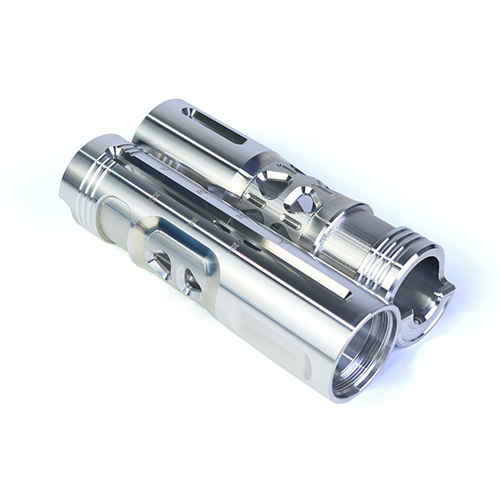The automotive industry has long been a driving force of technological innovation, shaping the future of manufacturing and pushing the boundaries of what’s possible. However, in recent years, there has been a remarkable shift—an inspiring transformation—taking place between the automobile industry and the machine tool industry. As these two industries converge, the lessons learned and the advancements made in one sector are beginning to influence the other in exciting and dynamic ways.
This article explores how the transformation of the automobile industry is offering valuable insights and enlightenment for the machine tool industry, and why this cross-industry collaboration is shaping the future of both sectors.
The Automotive Revolution: Automation, Precision, and Efficiency
The automotive sector has undergone a rapid transformation over the past few decades. From electric vehicles (EVs) to autonomous driving technologies, and the integration of smart manufacturing systems, the automotive industry has embraced cutting-edge technology at an unprecedented rate. With the global demand for more efficient, sustainable, and high-performance vehicles, automakers have had no choice but to push the boundaries of innovation.
One of the biggest takeaways from this revolution has been the shift toward automation and precision manufacturing. Automated systems, robotics, and AI-driven production lines have become key to improving both the speed and accuracy of manufacturing processes in the automotive sector. The demand for higher-quality components that require intricate designs has also led to the development of new materials and technologies for precision engineering.
Insights for the Machine Tool Industry
As the automobile industry advances toward automated and highly efficient manufacturing practices, these innovations have opened up new possibilities for the machine tool industry. Here’s how the transformation of the automotive sector is influencing the future of machine tools:
1.Emphasis on Precision and Efficiency
Just as the automotive industry has moved toward faster, more accurate production techniques, machine tools must evolve to meet similar demands. The machine tool industry is embracing advanced technology like CNC (Computer Numerical Control) machines, 5-axis machining, and high-speed cutting tools to provide the level of precision needed for increasingly complex automotive parts. The ability to cut, shape, and mold components with near-perfect accuracy is a direct reflection of the technological advances seen in car manufacturing.
2.Smart Manufacturing and Industry 4.0
The concept of Industry 4.0, driven largely by automotive innovations, is making its way into the machine tool industry. Integrating IoT (Internet of Things) technology into machine tools enables real-time monitoring, data collection, and predictive maintenance, ensuring machines operate at peak efficiency. This move towards smart factories—where machines can communicate with each other and adapt to changing production requirements—has been a key element in the success of the automotive industry and is now being embraced by the machine tool industry to improve operational efficiency and reduce downtime.
3.Sustainability and Resource Efficiency
As environmental concerns rise, the automotive industry is focusing heavily on producing eco-friendly vehicles and adopting more sustainable manufacturing processes. This focus on sustainability is spilling over into the machine tool industry, where manufacturers are designing more energy-efficient, resource-conserving machines. Recyclable materials, energy-efficient operations, and the reduction of waste during production are gaining attention as both industries work toward achieving their sustainability goals.
4.Integration of Robotics and AI
Robotics and AI have long been part of the automotive production process, helping automate tasks that would otherwise be too time-consuming or difficult for human workers. The machine tool industry is also adopting robotic systems to automate loading and unloading processes, improve tool-changing capabilities, and even aid in the inspection of finished parts. AI-driven systems help optimize machining processes, enhancing productivity while reducing the likelihood of human error.
5.Customization and On-Demand Manufacturing
The automotive sector has pushed the boundaries of customization, with car buyers now able to select from a variety of features and modifications. This growing trend for personalized products is influencing the machine tool industry, where manufacturers are focusing more on flexible and customizable machine tool solutions. The need for producing smaller batch runs of highly customized components in various industries—such as aerospace, electronics, and medical devices—aligns perfectly with the capabilities of modern machine tools.
A New Era of Collaboration
As the automotive and machine tool industries continue to share knowledge and technology, the result is a synergy that benefits both sectors. By learning from the automotive industry’s embrace of automation, precision, and smart manufacturing, the machine tool industry is positioning itself to meet the demands of an increasingly sophisticated global market.
Moreover, this transformation is not limited to large-scale manufacturers. Smaller, more agile machine tool companies can also adopt these innovations, allowing them to compete in niche markets, improve quality, and reduce lead times for their customers.
Conclusion: A Bright Future Ahead
The transformation of the automobile industry is providing invaluable insights for the machine tool industry. From the integration of smart technologies and automation to the drive for sustainability and precision engineering, the automotive sector’s advancements are reshaping the way machine tools are designed, manufactured, and utilized.
As these two industries continue to evolve together, the future promises a new era of efficiency, precision, and collaboration—one where both sectors can thrive through shared innovation. For manufacturers across the globe, understanding and embracing this cross-industry enlightenment is the key to remaining competitive in a rapidly changing market.
In this dynamic landscape, staying ahead means learning from one another, adopting the latest technologies, and continuing to push the boundaries of what’s possible. The automotive industry has set the bar, and the machine tool industry is ready to rise to the challenge.
Post time: Feb-25-2025





